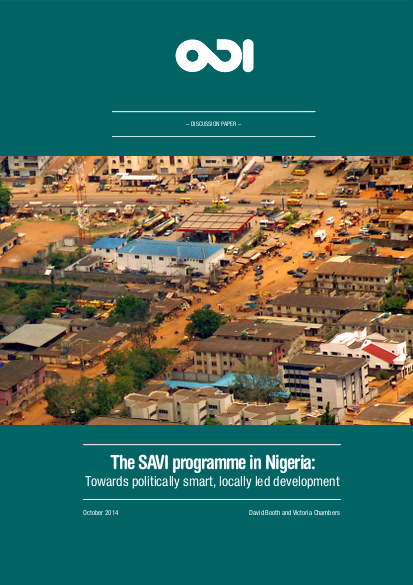
Development assistance programmes that start from careful analysis of what works and what does not in country contexts are still remarkably rare. This is mainly because aid programming is heavily constrained by what politicians in donor countries believe, often on limited evidence, about recipient country needs and possibilities. To a lesser extent, it is because we lack well documented examples of programming that achieves a ‘good fit’ with country context, or is ‘politically smart’, problem-driven, adaptive, locally led, etc. This paper is a contribution to an expanding set of studies that is helping to correct this evidence gap. It examines the experience of SAVI, one of a suite of state-level DFID programmes in Nigeria. SAVI belongs to the formal category of ‘demand side’ governance programmes; the acronym stands for State Accountability and Voice Initiative. It provides support to State Houses of Assembly, mass media organisations and civil society organisations (CSOs), while another state-level programme, SPARC, provides public management assistance to the executive branch of government. The paper asks to what extent SAVI differs from previous programmes in Nigeria and elsewhere that are similarly labelled, and whether it may be accurately described as politically smart and locally led.
